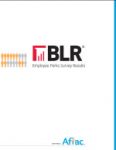$1.3M Settlement in COBRA/ARRA Class Action Now Final
On April 23, a federal district court in Alabama gave final approval to a settlement agreement under which an employer and plan administrator will pay $1.3 million to a group of former employees who alleged they never received COBRA election or premium subsidy information after their involuntary termination of employment. The case is Hornsby v. […]






